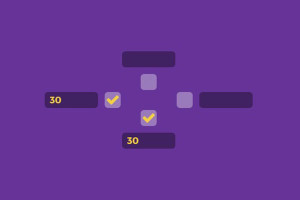If you’ve been coding in PHP for a while, you may be familiar with the foreach loop. It provides an easy way to analyze every item in an array, e.g.
$myArray = array();
$myArray[] = "First item";
$myArray[] = "Second item";
$myArray[] = "Third item";
foreach ($myArray as $i) {
echo "<p>$i</p>";
}
- records from a database
- navigation links
- names of files within a directory
- lines of text read from a file
- product objects in a specific shop category
class WebTechnologies
{
private $tech;
// constructor
public function __construct() {
$this->tech = explode( ',', 'PHP,HTML,XHTML,CSS,JavaScript,XML,XSLT,ASP,C#,Ruby,Python') ;
}
}
class WebTechnologies implements IteratorAggregate
{...
// return iterator
public function getIterator() {
return new ArrayIterator( $this->tech );
}
class WebTechnologies implements IteratorAggregate
{
private $tech;
// constructor
public function __construct() {
$this->tech = explode( ',', 'PHP,HTML,XHTML,CSS,JavaScript,XML,XSLT,ASP,C#,Ruby,Python' );
}
// return iterator
public function getIterator() {
return new ArrayIterator( $this->tech );
}
}
// create object
$wt = new WebTechnologies();
// iterate over collection
foreach ($wt as $n => $t) {
echo "<p>Technology $n: $t</p>";
}
Frequently Asked Questions about PHP Simple Object Iterators
What is a PHP Simple Object Iterator?
A PHP Simple Object Iterator is a feature in PHP that allows you to traverse or loop through an object’s properties. It is part of PHP’s Standard PHP Library (SPL) and is used to provide a way to iterate over an object’s properties in a manner similar to arrays. This feature is particularly useful when dealing with complex data structures.
How does a PHP Simple Object Iterator work?
A PHP Simple Object Iterator works by implementing the Iterator interface. This interface provides five methods: current(), key(), next(), rewind(), and valid(). These methods allow you to control the iteration process, such as moving to the next element, resetting the pointer to the beginning, and checking if there are more elements to iterate over.
What is the difference between PHP Simple Object Iterators and arrays?
While both PHP Simple Object Iterators and arrays can be used to store and manipulate data, they have some key differences. Arrays are simple data structures that can hold multiple values, while PHP Simple Object Iterators are more complex and can be used to iterate over an object’s properties. Additionally, PHP Simple Object Iterators provide more control over the iteration process compared to arrays.
How do I implement a PHP Simple Object Iterator?
To implement a PHP Simple Object Iterator, you need to create a class that implements the Iterator interface. This class should define the five methods provided by the interface: current(), key(), next(), rewind(), and valid(). Once the class is defined, you can create an instance of it and use it to iterate over an object’s properties.
Can I use PHP Simple Object Iterators with associative arrays?
Yes, you can use PHP Simple Object Iterators with associative arrays. The Iterator interface provides a way to iterate over an object’s properties, and this includes associative arrays. However, keep in mind that the keys in an associative array are treated as properties of the object.
What are the benefits of using PHP Simple Object Iterators?
PHP Simple Object Iterators provide several benefits. They allow you to control the iteration process, making it easier to work with complex data structures. They also provide a way to iterate over an object’s properties, which is not possible with arrays. Additionally, PHP Simple Object Iterators are part of the Standard PHP Library (SPL), which means they are well-documented and widely supported.
Are there any limitations to using PHP Simple Object Iterators?
While PHP Simple Object Iterators are powerful tools, they do have some limitations. For example, they can only be used to iterate over an object’s properties, not its methods. Additionally, they require a class to be defined that implements the Iterator interface, which can add complexity to your code.
Can I use PHP Simple Object Iterators with multidimensional arrays?
Yes, you can use PHP Simple Object Iterators with multidimensional arrays. However, keep in mind that each dimension of the array is treated as a separate object, so you will need to use nested iterators to traverse the entire array.
How do I handle errors when using PHP Simple Object Iterators?
When using PHP Simple Object Iterators, errors can be handled using exception handling. If an error occurs during the iteration process, an exception can be thrown and caught in a try-catch block. This allows you to handle the error gracefully and prevent it from crashing your program.
Can I use PHP Simple Object Iterators in a foreach loop?
Yes, you can use PHP Simple Object Iterators in a foreach loop. The foreach loop in PHP automatically detects if the object being iterated over is an instance of the Iterator interface, and if so, it uses the methods provided by the interface to control the iteration process.
Craig is a freelance UK web consultant who built his first page for IE2.0 in 1995. Since that time he's been advocating standards, accessibility, and best-practice HTML5 techniques. He's created enterprise specifications, websites and online applications for companies and organisations including the UK Parliament, the European Parliament, the Department of Energy & Climate Change, Microsoft, and more. He's written more than 1,000 articles for SitePoint and you can find him @craigbuckler.

